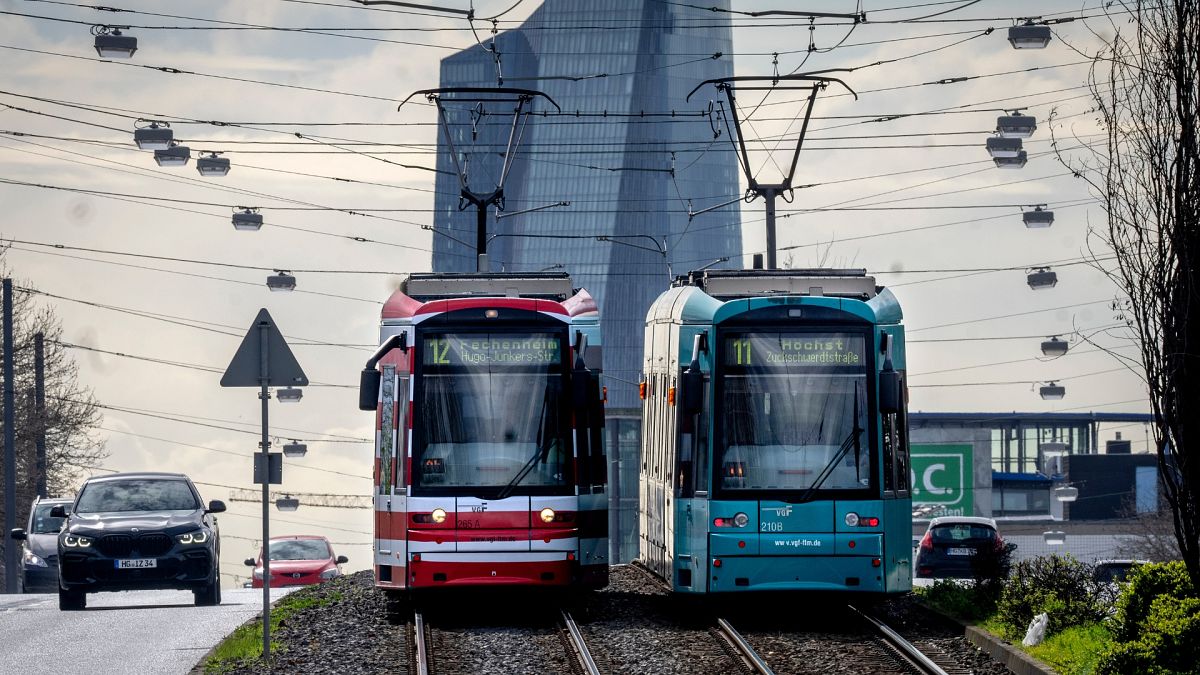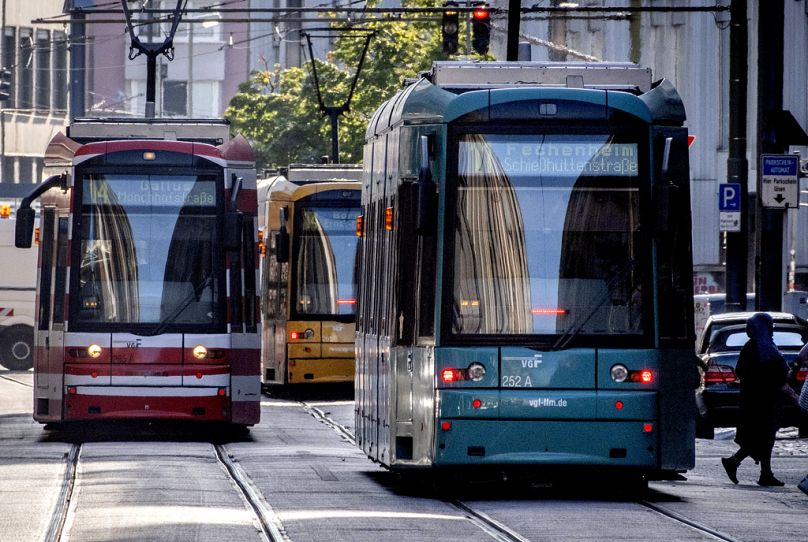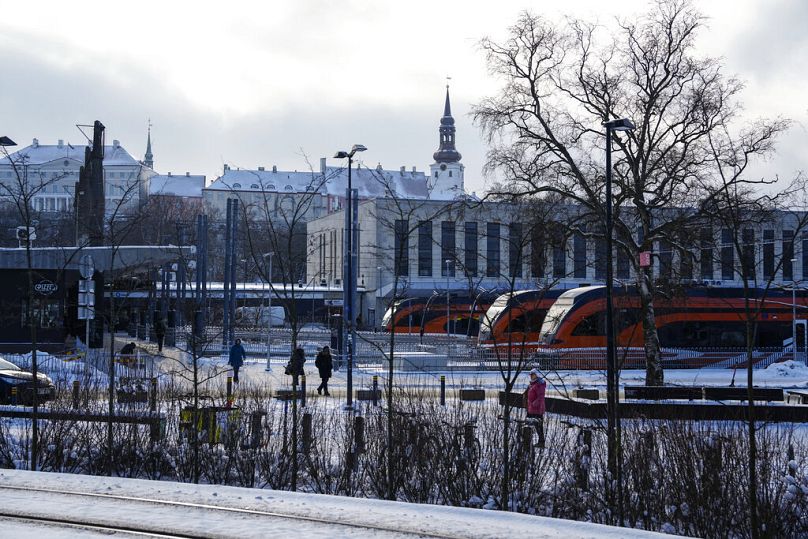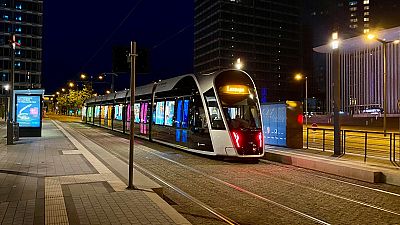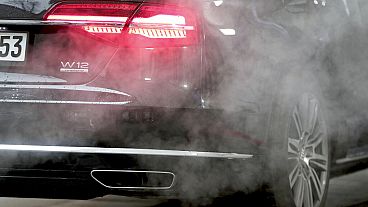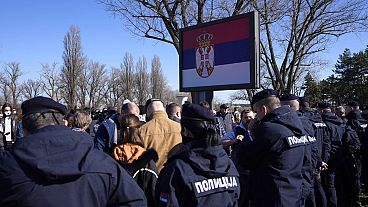Public transport is one of the lowest carbon ways to travel but getting people to use it isn't always easy.
Austria's KlimaTicket will be free for one year for all 18 year olds from 1 July.
Anyone who has celebrated their 18th birthday since 1 January 2024 and is registered in the country will be able to get one. Young people will be able to choose when to start their year long ticket between their 18th and 21st birthdays. Around 88,000 people will be eligible each year.
"We want to get even more young people excited about public transport in the long term," Austria's climate minister Leonore Gewessler said on social media site X.
"Because once you notice how good public transport is, you'll stick with it."
Climate tickets have become a hot topic in Europe. With rising cost of living and ongoing concerns about carbon emissions, these national public transport passes have been popular with the public.
But there are mixed messages on just how effective different schemes to encourage people to take trains and buses have been. Inaccessibility, overcrowding and sparse public transport networks have proved problematic in some places.
Getting people to ditch cars and planes, it turns out, is more complicated than just ensuring free or low cost tickets.
Where in Europe has the cheapest and most accessible public transport?
Last year, a Greenpeace report revealed the state of public transport across 30 European countries.
Nations were ranked based on four criteria: the simplicity of their ticketing systems, affordability of long-term tickets, discounts for socially disadvantaged groups and VAT rates. The report also looked at individual capital cities, rating them based on the same categories.
Each capital and country was assigned a score out of a possible 100 points.
Luxembourg, Malta, Austria, Germany, Cyprus and Spain came out on top with high scores for easy-to-use tickets and discounts. Tallinn in Estonia, Luxembourg and Valletta in Malta came in the first three spots for the city ranking.
Greece, Croatia and Bulgaria were at the bottom of the country list with Bulgaria scoring no points in any of the four categories.
When it comes to individual cities, Amsterdam in the Netherlands, London in the UK and Dublin in Ireland scored the worst for cost and accessibility.
How effective are Europe's climate tickets?
A number of countries and cities have set a Europe-wide trend towards climate tickets.
“Our definition of a climate ticket is a public transport ticket which is valid for all or most means of public transport…for a certain period,” Herwig Schuster, transport expert for Greenpeace’s Mobility for All campaign explained at the time.
“I think the only model that is quite close to our [recommendation] is the Austrian model because the Austrian climate ticket covers all means of transport. So you can use the pass in the countryside as well as on the underground in Vienna.”
In 2023, Germany, Hungary, Slovenia and Portugal were among the European countries embarking on a climate ticket journey. France was also aiming for a scheme similar to Germany's €49 rail pass.
This has now been scaled back to ticket which allows unlimited travel on TER and Intercity trains but will exclude high-speed TGV trains.
Greenpeace says all European countries that haven’t yet reduced the cost of public transport should introduce a climate ticket.
But those that have already introduced these kinds of passes also need to improve them.
The analysis shows the ideal ‘climate ticket’ doesn’t yet exist in Europe. Schuster says that while the Austrian model is good, it is too expensive. Something that the free year long pass for 18 year olds goes a small way to fixing.
The number of people actually using Austria's KlimaTicket has been brought into question, too.
The Deutschlandticket is cheaper but it isn’t valid on some city transport networks.There have been doubts about just how effective this country-wide transport scheme is, too.
A forecast by the Federal Environment Agency, published alongside a report from the German Council of Experts on Climate Change last year, suggested that the Deutschlandticket does little to cut emissions.
It says that calculations from the Transport Ministry of a 22.6 million tonne reduction by 2030 "appear overestimated". The report predicts a figure of around 4.2 million tonnes is more likely.
So what is the problem with the €49 ticket? Infrastructure is the simple answer.
More people using public transport without improving capacity leads to overcrowding. The prospect of an uncomfortable journey does little to encourage people ditch their cars.
And, for a large proportion of Germany's roughly 83 million inhabitants, regular public transport services aren't a reality.
Think tank Agora Verkehrswende estimates that around 27 million people "either have no connection to public transport in their area or only a few times a day".
It shows that, even if costs are cut and ticketing made simpler, rail and bus services need to improve in order for people to want to use them.
Can free public transport convince people not to use their cars?
“We don’t explicitly advocate for free transport,” Schuster said.
“We always say that transport should be affordable but not free. It’s okay if this is done in Luxembourg which is a super rich country.”
Tallinn was one of the first cities to make public transport free for residents in 2013 and it has led to a 1.2 per cent increase in demand since it was introduced. Luxembourg was then the first European country to make tickets free for commuters and foreign tourists alike. Initially, it failed to encourage people to switch away from cars.
Greenpeace noted that this is probably because more than 200,000 people commute in and out of Luxembourg meaning they’d still need to buy a ticket for a neighbouring country.
“People typically go from Germany to Luxembourg, from Belgium to Luxembourg and still use the car because it's not really helpful if they don’t pay for the Luxembourg section,” Schuster says.
A new pilot scheme has seen the country extend its free public transport to commuters who live in French municipalities on the border in an effort to tackle this issue.
Montpellier in France also made public transport free in December last year and initial figures suggest it may have been more successful than other schemes. Officials say in the first five months journeys on public transport have jumped by more than 20 per cent.
What will encourage more people to use public transport?
Greenpeace says reducing the cost of public transport is still one of the “easiest and quickest” ways to shift people from cars to trains and buses.
The cost of public transport must be lower than that of running a car and worth the price or people won’t use it. The easiest and fairest solution for most countries is to aim for somewhere around €1 a day.
Though funding is an issue, there is “huge potential”, to shift money from fossil fuel subsidies or introduce taxes on airline tickets and kerosene to pay for the reduced ticket prices, Schuster adds.
One of the easiest ways to cut the cost would be removing VAT, with some Eastern European countries having rates as high as 20 per cent.
“Over a couple of years, I think all governments could be able to introduce that kind of fair pricing.”
Making systems easier to navigate with simple ticketing systems is also important. Schuster says that electronic cards that can be used everywhere - like those in the Netherlands - are a good solution. Especially when compared to Bulgaria where you might need several tickets for a bus or to change trains.
Combining low cost, good infrastructure and a simple-to-understand ticketing system could be the best way to encourage more people to use public transport.
